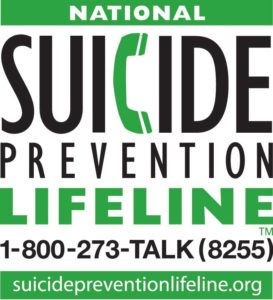My husband shared with me recently, something a friend of his had written and posted on Facebook that he had been moved by. After reading it I agreed that I too was moved. Traci’s message being my message, my message being Traci’s message. So here are Traci’s words, directly off her wall, in all their eloquence, posted here with her consent. Sometimes just knowing people with mental health issues is enough to allow you to know how rough we have it.
I had been staying away from the school shooting conversation. It’s too much…too tragic…too many emotions to try to muddle through to argue.
But yesterday, I heard sensible people, normally very compassionate and understanding, say terribly insensitive things in response to the tragedy. The discussion was about the mentally ill and even though “they were terrible, they should throw people like him into old fashioned asylums.”
Now I know people are looking to place blame. Moreover, I think they are wanting to see someone suffer to bring some kind balance their idea of justice. But I want to talk about mental illness and why situations like these are extremely dangerous to the mental illness community.
TrendingWhen we as a society look at such tragedy, we want a reason, an explanation that is easy to understand. We want something that we can fix so that there is a sense that this type of sadness can be prevented. But when I read the multitude of articles written about closer scrutiny on persons living with mental illness it clearly illustrates a great lack of understanding of those people’s lives.
From the very few articles I’ve been able to find, the shooter from the Sandy Hook Elementary school had no official diagnosis of mental illness. I omit his name, because I want to avoid glorifying this man by such a dreadful act.
From Huffington Post’s Dr. Harold Koplewicz’s article posted 12/17:“Unfortunately, that hasn’t stopped extensive speculation that [he] had Asperger’s disorder, or a personality disorder, and even obsessive-compulsive disorder. Much has been made of the reports that [he] was a smart but quiet kid who carried a briefcase to class instead of a backpack and felt at home with computers, perhaps more so than with his peers. By themselves these traits do not indicate any diagnosis at all, although we have been quick to dissect them in the search for meaning.”
Let me make this abundantly clear, for someone to do what he did, one has to be unbalanced. Your understanding of reality and what is right and wrong have to, in some way, become detached. That break in reality has to be there to do such a terrible thing. But that kind of mental break is not my reason for posting.
To turn the blame away from the person themselves onto an entire community of people with chemical imbalances is staggeringly dangerous. Every morning, thousands of people wake, go throughout their days, work, study, and live productive lives. They experience joy and sadness and confusion and beauty and they work to maintain balance in their lives.
The shooter last week, according to quotes from those who knew him, showed little warning signs aside from social awkwardness. So could this have been detected or prevented? For the average mental health consumer, finding assistance when they need it is often difficult. Our psychologists, therapists and counselors are often overbooked. For a person in need, to see a mental health professional can take weeks. The best option for many who are without a therapist is to have themselves admitted into an inpatient clinic. And having the foresight to get help when it is desperate can be a challenge.
So then what can we do to help our friends and loved ones? We aren’t helpless.
Well first off, listening can be an invaluable gift to someone in need. Being there to listen and let someone vent or have a safe place to come and explain what they are going through can be the support they need to get through a tough patch, Also, being conscious of their needs, their moods and being able to communicate if you notice a change.
Additionally, education can empower you to inform yourself about mental illness, the signs and concerns to be mindful of to help avoid any tragedy. Many advocacy groups and websites offer classes and provide booklets to help explain mental illness in easy to understand format.
But most importantly, knowing what resources are available can save lives. Advocacy groups and support channels are out there, not only for the consumers of mental healthcare, but also for their support and family members.
www.nami.org – NAMI is the National Alliance on Mental Illness has a great number of resources for individuals and their families.
http://www.suicidepreventionlifeline.org/ – The website for the National Suicide Prevention Hotline, the number is 1-800-273-TALK (8255)
http://www.nimh.nih.gov/index.shtml – National Institute of Mental Illness
Please be open to reaching out to people instead of fear. Open your arms and hearts, give support instead of anger and you could save the life of someone you love and who knows how many else.
Traci, I’d like to thank you for not only what you had to say, but for allowing me to borrow your words and post them here for my community.
